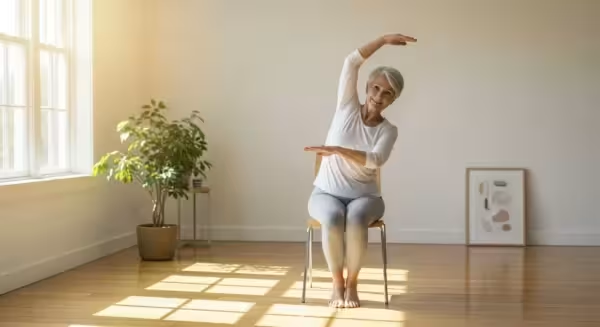
A Step-by-Step Guide to Boosting Energy Safely
Improving your energy levels is a journey, not a race. By taking small, consistent steps, you can build a routine that supports your vitality for the long term. Here is a practical guide to incorporating safe, energy-boosting habits into your life.
Step 1: Fuel Your Body with an Energizing Diet
The food you eat is your body’s primary source of fuel. Choosing the right kinds of foods can provide a steady stream of energy, while the wrong ones can lead to crashes. Think of it like putting high-quality gasoline in a car for a smooth ride.
- Focus on Whole Foods: Prioritize fruits, vegetables, lean proteins, and whole grains. These foods are packed with the nutrients your body needs. Examples include berries, leafy greens like spinach, chicken or fish, beans, and oatmeal.
- Include Complex Carbohydrates: Unlike sugary snacks that cause a quick spike and crash in blood sugar, complex carbs like whole-wheat bread, brown rice, and quinoa provide sustained energy.
- Don’t Skip Protein: Including a source of protein with every meal helps stabilize blood sugar and keeps you feeling full and energized longer. Good sources include eggs, yogurt, nuts, and lentils.
- Stay Hydrated: Dehydration is a very common cause of fatigue. Aim to sip water throughout the day, even if you don’t feel thirsty. If plain water is unappealing, try infusing it with lemon or cucumber slices.
Step 2: Incorporate Gentle, Regular Movement
Exercise is one of the most effective ways to combat fatigue and improve senior energy levels. It boosts circulation, strengthens your heart, and even releases endorphins, which are natural mood elevators. The key is to choose activities you enjoy and that are appropriate for your fitness level.
- Walking: A simple, accessible, and highly effective exercise. Start with 10-15 minute walks and gradually increase your time as you feel more comfortable. A short walk after a meal can also aid digestion and prevent post-meal sleepiness.
- Chair Yoga: This is a wonderful option for those with mobility or balance concerns. Chair yoga provides the benefits of stretching, breathing, and mindfulness without the need to get on the floor. Look for free videos online or check for classes at your local senior center.
- Tai Chi: Often described as “meditation in motion,” Tai Chi involves slow, flowing movements that improve balance, flexibility, and strength. Its gentle nature makes it an excellent choice for seniors.
Safety First: Always warm up before starting any activity with a few minutes of light stretching. Wear comfortable, supportive shoes, and stop immediately if you feel dizzy, short of breath, or experience any pain.
Step 3: Prioritize Restorative Sleep
Poor sleep is a guaranteed recipe for low energy. Improving your “sleep hygiene”—the habits and environment that contribute to quality sleep—can have a profound impact on how you feel during the day.
- Stick to a Schedule: Try to go to bed and wake up around the same time every day, even on weekends. This helps regulate your body’s internal clock.
- Create a Restful Environment: Make sure your bedroom is dark, quiet, and cool. Consider using blackout curtains or a white noise machine if needed.
- Establish a Wind-Down Routine: In the hour before bed, avoid screens (TVs, phones, tablets) as the blue light can interfere with sleep. Instead, try reading a book, listening to calm music, or taking a warm bath.
- Limit Naps: If you need to nap, try to keep it short (20-30 minutes) and take it earlier in the afternoon to avoid interfering with your nighttime sleep.
Step 4: Manage Stress and Nurture Your Mind
Emotional and mental stress can be just as draining as physical exertion. Finding healthy ways to manage stress is a crucial component of maintaining your aging vitality and pursuing natural health.
- Practice Mindfulness: Spend a few minutes each day simply focusing on your breath. This simple act can calm your nervous system and reduce feelings of overwhelm.
- Connect with Others: Social isolation can contribute to depression and low energy. Make an effort to call a friend, join a club, or participate in community activities.
- Spend Time in Nature: Even a few minutes sitting in a park or tending to a garden can be restorative. Sunlight provides Vitamin D, which is also linked to energy levels.















